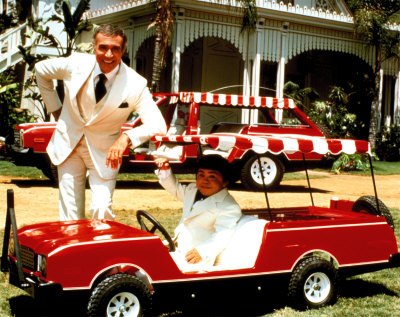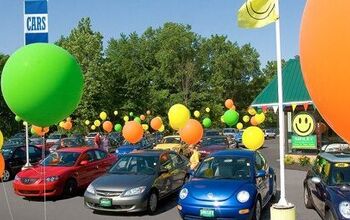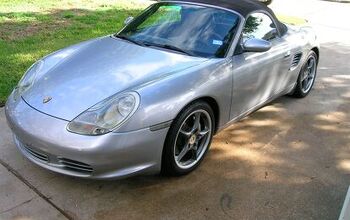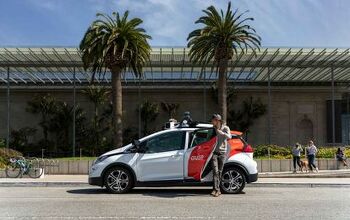17m US Sales: Fantasy Or Reality?
As US sales continue to tumble of a giant cliff, it becomes tempting to spin a short-term trend into a long-term projection. Just as peak oil theorists were everywhere last summer, warning that gas would never again cost less than $4 per gallon, many analysts now think that the US car market will never again reach 17m per year. Automotive News [sub] takes on the debate, fielding arguments from both sides. On the pessemistic front, players like Pricewaterhouse Cooper see the 17 million years as “an aberration,” artificially pumped up by a false sense of personal wealth, lax lending standards and irresponsible automaker incentives. Daimler’s Dieter Zetsche, Mazda’s Jim O’Sullivan, and private equity baron Wilbur Ross fall in the sub-17m camp as well. They collectively estimate an eventual recovery of 15-16m units by around 2012-2014. The other side of the argument is concisely summarized by Robert Schnorbus of JD Power: “Of course we will return to 16 or 17 million. Every recession we hear this argument that Americans have fundamentally changed, but Americans love their features and comfortable cars.”
Ford senior economist Emily Kolinski Morris concurs, pointing out that “pent-up demand grows as the average age of passenger cars exceeds 9 years and the sales rate falls below the U.S. average annual scrapping rate of 12.5 million. The U.S. driving-age population increases 2 million a year, headed toward 264 million potential drivers out of a total population of 331 million by 2018.” But on the other hand, Morris notes that unemployment is high and consumer confidence is at an all-time low. Deutsche Bank’s Rod Lache points out that debt levels also work against a strong recovery, as “short-term debt is 14 percent of income.”
But whether American sales return to 17m, or never again peack past 14m, the uncertainty is hell in the short term. Few expect 2009 sales to exceed 12m, but planning for a recovery is confounding medium- and long-term planning for the automakers. Volatility in energy prices and nearly every other economic indicator are forcing production plans to become as flexible as possible. With each of the next four years (at least) being planned with several million separating the high- and low-sales scenarios, the risks of misprojection are high and the consequences would be profound. Especially for firms that are on federal life support.
More by Edward Niedermeyer
Latest Car Reviews
Read moreLatest Product Reviews
Read moreRecent Comments
- Jalop1991 is this anything like a cheap high end German car?
- HotRod Not me personally, but yes - lower prices will dramatically increase the EV's appeal.
- Slavuta "the price isn’t terrible by current EV standards, starting at $47,200"Not terrible for a new Toyota model. But for a Vietnamese no-name, this is terrible.
- Slavuta This is catch22 for me. I would take RAV4 for the powertrain alone. And I wouldn't take it for the same thing. Engines have history of issues and transmission shifts like glass. So, the advantage over hard-working 1.5 is lost.My answer is simple - CX5. This is Japan built, excellent car which has only one shortage - the trunk space.
- Slavuta "Toyota engineers have told us that they intentionally build their powertrains with longevity in mind"Engine is exactly the area where Toyota 4cyl engines had big issues even recently. There was no longevity of any kind. They didn't break, they just consumed so much oil that it was like fueling gasoline and feeding oil every time


































Comments
Join the conversation
Talking about the number 17M as having some meaning or significance is nonsense. The market is either growing or shrinking. What the sales volume is, on any given day or year, is meaningless. While the market is shrinking, we will see a lot of marginal producers fall off and die (Chrysler, anyone? - Fiat or no Fiat). When the market starts to grow again, we will see the entry of new players to replace the players who were lost. Where will the new players come from? China and India.
This is inherently unpredictable, and the only thing we know for sure is that we are likely to see bigger swings in sales numbers. Given the possible life span of modern cars, a new car purchase is more of a luxury than ever before, and clever marketing and economic booms can create very high sales figures, but changing fashions and economic depression can also generate extremely low sales figures. Anyone claiming to be able to predict this is lying. My prediction: the winner here is the car maker that can easily adapt to big swings in demand.